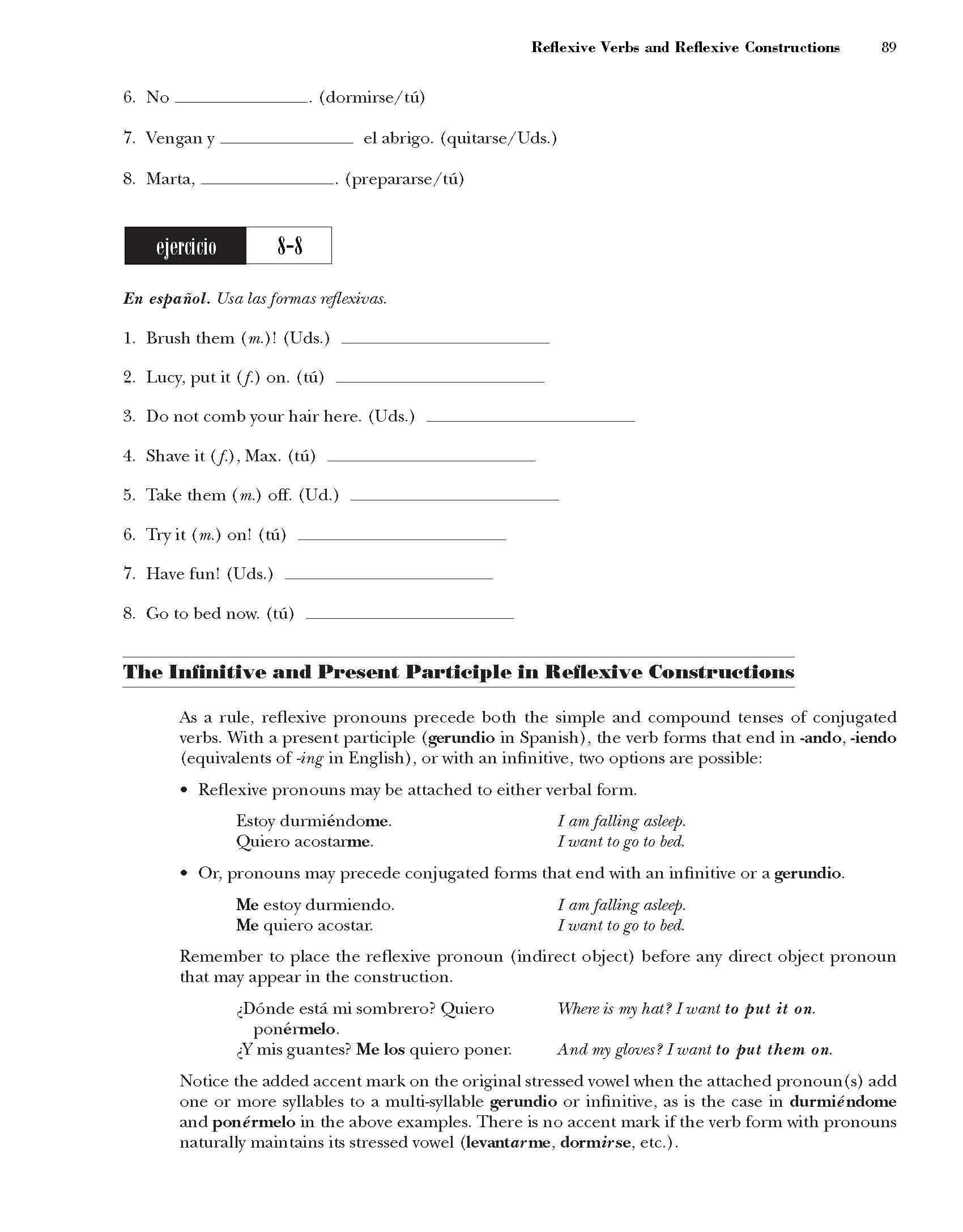CSG100

89
Reflexive Verbs and Reflexive Constructions
6. No__(dormirse/tu)
7. Yengan y_ el abrigo. (quitarse/Uds.)
8. Marta,__(prepararse/tu)
ejercicio
En espańol. Usa las formas reflexivas.
1. Brush them {m.)\ (Uds.) _
2. Lucy, put it (f ) on. (tu) _
3. Do not comb your hair here. (Uds.)
4. Shave it (/), Max. (tu) _
5. Take them (m.) off. (Ud.) _
6. Try it {m.) on! (tu) _
7. Have fun! (Uds.) _
8. Go to bed now. (tu) _
The Infinitive and Present Partieiple in Reflexive Construetions
As a rule, reflexive pronouns precede both the simple and compound tenses of conjugated verbs. With a present partieiple (gerundio in Spanish), the verb forms that end in -ando, -iendo (equivalents of -ing in English), or with an infinitive, two options are possible:
• Reflexive pronouns may be attached to either verbal form.
Estoy durmiendome. I am falling asleep.
Quiero acostaraie. I want to go to bed.
• Or, pronouns may precede conjugated forms that end with an infinitive or a gerundio.
Me estoy durmiendo. I am falling asleep.
Me quiero acostar. I want to go to bed.
Remember to place the reflexive pronoun (indirect object) before any direct object pronoun that may appear in the construction.
^Dónde esta mi sombrero? Quiero Wdiere is my hat? Iwant to put it on.
ponermelo.
<jY mis guantes? Me los quiero poner. And my gloves? Iwant to put them on.
Notice the added accent mark on the original stressed vowel when the attached pronoun(s) add one or morę syllables to a multi-syllable gerundio or infinitive, as is the case in durmiendome and ponermelo in the above examples. There is no accent mark if the verb form with pronouns naturally maintains its stressed vowel (lev ant ar me, dormirse, etc.).
Wyszukiwarka
Podobne podstrony:
CSG094 83 Reflexive Verbs and Reflexive Constructions 2. 3. 4. 5. 6. 1. Voy al bano y_en el
CSG092 Unit 8Reflexive ferbs and Reflexive Constructions Reflexive verbs are used in reflexive const
CSG102 Reflexive Verbs and Reflexive Constructions 91 8-11ejercicio En la tienda. Traduce. Usa el vo
CSG104 93 Reflexive Verbs and Reflexive Constructions • Use hacerse + noun or adjective to express t
CSG096 Reflexive Verbs and Reflexive Constructions 85The Tse of Reflexive Terbs in Spanish Reflexive
CSG098 87 Reflexive Verbs and Reflexive Constructions Basic meaning Reflexive
więcej podobnych podstron